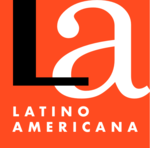The Mandatory Inclusion of the Subject of Gender Equality in the Law Degree Curricula
Keywords:
Gender, Education, Training, Law, InclusionAbstract
Gender equity in higher education represents a fundamental aspect in the training of future legal professionals. This study analyzes the importance of including courses on gender equity in the law degree curriculum, based on national and international regulatory frameworks (United Nations, 1979). Different implementation models and their benefits for legal education are identified, considering pedagogical contributions from authors such as Freire (1970), Dewey (1938), and Vygotsky (1978). The challenges and controversies surrounding its adoption are also addressed. The findings show that the inclusion of this subject is crucial to guarantee comprehensive legal training that promotes justice and equality (Espuny Tomás, Vallés Muñío & Velo i Fabregat, 2020).
References
Acker, J. (2020). Feminist foundations for the study of gender, race, and class in organizations. Gender & Society, 34(1), 12-35. https://doi.org/10.1177/0891243219873493
American Educational Research Association. (2022). Ethical standards of the American Educational Research Association. AERA. https://www.aera.net
Arango Gaviria, L. G. (2023). La perspectiva de género en la enseñanza del derecho: una deuda pendiente en América Latina. Revista Derecho del Estado, (55), 45-67.
Babbie, E. (2020). The practice of social research (15th ed.). Cengage Learning.
Bardall, S., & Bjarnegård, E. (2020). Gender and the judiciary: A review of theory and practice. Politics & Gender, 16(4), 1052–1079. https://doi.org/10.1017/S1743923X20000000
BerA-Journals. (2024). LGBTQIA+ representation in curriculum and student well-being. Curriculum Journal, 35(2), 211–225. https://doi.org/10.1002/curj.268
Cabrera, O., & Londoño, P. (2022). Inclusión de la perspectiva de género en los planes de estudio de derecho: experiencias y desafíos en Colombia. *Estudios Socio-Jurídicos, 24*(1), 123–150.
CONACYT. (2020). Lineamientos generales para la integración y funcionamiento de los comités de ética en investigación. Consejo Nacional de Ciencia y Tecnología. https://www.conacyt.gob.mx
Condron, C., Power, M., Mathew, M., Lucey, S., Henn, P., Dean, T., Kirrane-Scott, M., Eppich, W., & Lucey, S. M. (2025). Gender equality training for students in higher education: Scoping review. JMIR Medical Education, 11(1), e60061. https://doi.org/10.2196/60061
Connell, R. (2021). Gender and power: The sexual politics of social theory. John Wiley & Sons.
Dewey, J. (1938). Experience and education. Macmillan.
Díaz Villa, M. (2005). Flexibilidad curricular: significados y prácticas. Revista de la Educación Superior, 34(135), 7–23. https://www.scielo.org.mx/scielo.php?pid=S0187-358X2008000100008
Espuny Tomás, M. J., Vallés Muñío, D., & Velo i Fabregat, E. (Coords.). (2020). La investigación en derecho con perspectiva de género. Dykinson.
Flick, U. (2022). An introduction to qualitative research (7th ed.). SAGE.
Freire, P. (1970). Pedagogía del oprimido. Siglo XXI Editores.
García Prince, E. (2020). Políticas de igualdad, equidad y gender mainstreaming. ¿De qué estamos hablando? Marco conceptual para la igualdad. ONU Mujeres.
Ginsberg, R. (2025). Teachers' experiences with school censorship: A national report. Reading Research Quarterly, 60(1), 45–63. https://doi.org/10.1002/rrq.70030
Hernández-Sampieri, R., & Mendoza, C. (2021). Metodología de la investigación: Las rutas cuantitativa, cualitativa y mixta (7.ª ed.). McGraw-Hill.
Hunter, R. (2021). Feminist judging and legal education. Journal of Law and Society, 48(S1), S89–S107. https://doi.org/10.1111/jols.12294
Lamas, M. (2022). El género: Una categoría útil para el análisis social. Revista de Estudios de Género, 28(1), 15-40. https://doi.org/10.22201/cieg.2594066xe.2022.1
Larraín, A., & Zabludovsky, G. (2021). La importancia de la formación en género para las y los operadores jurídicos. Revista de Derecho (Valdivia), 34(2), 223–245. https://doi.org/10.4067/S0718-09502021000200223
Moreno, X. (2020). Educación superior con enfoque de género: Una propuesta para la formación profesional feminista. Revista de Estudios de Género, 26(2), 145–167. https://doi.org/10.22201/cieg.2594066xe.2020.2
Naciones Unidas. (1979). Convención sobre la eliminación de todas las formas de discriminación contra la mujer (CEDAW). Oficina del Alto Comisionado. https://www.ohchr.org/es/instruments-mechanisms/instruments/cedaw
National Women's Law Center. (2024a). How school censorship promotes sex discrimination. NWLC. https://nwlc.org/wp-content/uploads/2024/01/2024_nwlc_Censorship_FS.pdf
National Women's Law Center. (2024b, May 13). NWLC files civil rights complaints against Georgia and Florida school districts for censoring inclusive books [Press release]. https://nwlc.org
PEN America. (2024, October 8). America's censored classrooms 2024. PEN America. https://pen.org/report/americas-censored-classrooms-2024
Principios de Abogadas y Abogados por la Justicia Social. (2023). La formación en género como imperativo deontológico en la abogacía. Editorial Jurídica Continental.
Ronconi, L. M., & Pautassi, L. (Comps.). (2010). Enseñar el derecho desde una perspectiva de género. FCU.
Scott, J. W. (2021). Gender: A useful category of historical analysis. In Feminism and History (pp. 152-170). Oxford University Press.
Stenhouse, L. (1975). An introduction to curriculum research and development. Heinemann.
UNESCO. (2017). Education for sustainable development goals: Learning objectives. UNESCO Publishing.
UNESCO. (2019). Estrategia de igualdad de género 2019–2025. UNESCO. https://unesdoc.unesco.org/ark:/48223/pf0000369000_spa
UN Women. (2023). Progress on the Sustainable Development Goals: The gender snapshot 2023. Naciones Unidas. https://www.unwomen.org
Vygotsky, L. S. (1978). Mind in society: The development of higher psychological processes. Harvard University Press.
Walsh, L. (2025). Gender responsive pedagogy in higher education. Oxford Review of Education, 51(3), 367–384. https://doi.org/10.1080/03054985.2025.2477064
Zabalza, M. A. (2003). Diseño y desarrollo curricular. Narcea.









